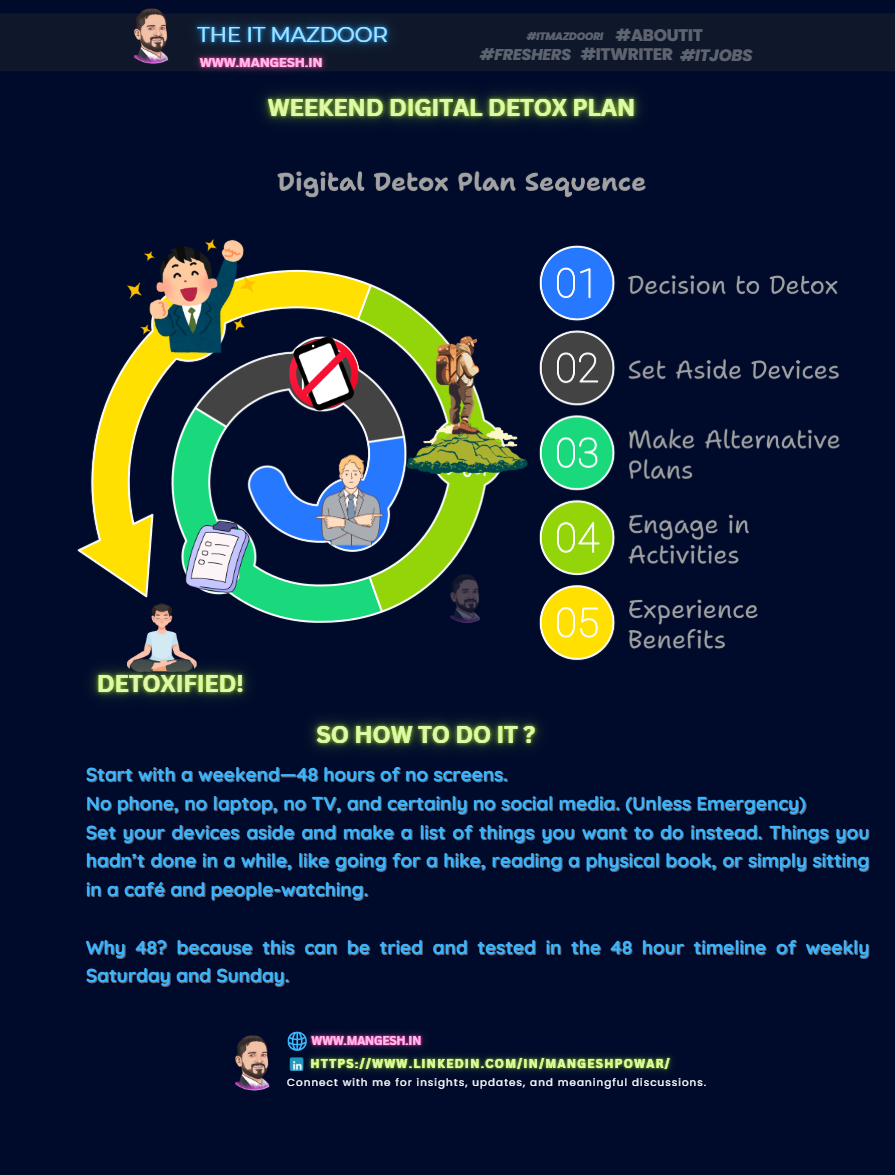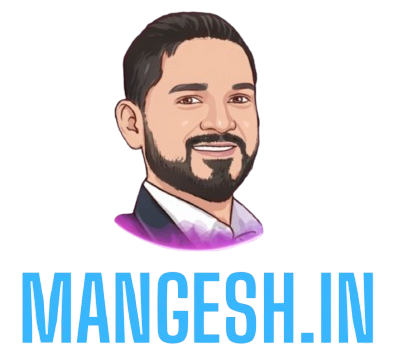
I’m the first to admit it—I love technology. Cuz I have been working with computers, desktops, digital devices since 1995. But in recent years, these devices have been munching on our daily schedule and routines more than ever. In this article I am trying to throw some light on “Digital Detox” – a method of micro vacation for IT professionals.
My day is filled with emails, instant messages, social media updates, and a constant stream of notifications. Being constantly connected has become so normal that I barely noticed how much time I was spending on my devices until one day it hit me—I was exhausted, not just physically but mentally too. It felt like my brain was always “on,” and I couldn’t remember the last time I had truly disconnected.
That’s when I decided to try a digital detox. It wasn’t easy at first; in fact, it was much harder than I anticipated. The idea of turning off my phone, stepping away from my laptop, and ignoring the constant ping of notifications made me anxious. But I knew I needed to reclaim some balance in my life.
Why I Needed a Digital Detox
The constant connectivity had started to take a toll on me. I realized I was spending more time staring at screens than engaging in real-world experiences. My relationships with friends were suffering, I wasn’t sleeping well, and I couldn’t seem to focus on anything for long periods. It was like my mind was always racing, trying to keep up with the barrage of information coming my way.
So the lesson is – “Excess of anything is harmful”
I started noticing signs of burnout—irritability, stress, and a general sense of being overwhelmed. That’s when I knew I needed to make a change.
The Detox Plan
My plan was simple: I would start with a weekend—48 hours of no screens. No phone, no laptop, no TV, and certainly no social media. I set my devices aside and made a list of things I wanted to do instead. Things I hadn’t done in a while, like going for a hike, reading a physical book, or simply sitting in a café and people-watching. Why 48? because this can be tried and tested in the 48 hour timeline of weekly Saturday and Sunday.
At first, it felt strange. I kept reaching for my phone out of habit, only to remember that I had turned it off. But as the hours passed, something amazing happened—I started to feel more relaxed. Without the constant influx of information, my mind felt clearer. I was more present in the moment, more aware of my surroundings, and more connected to the people around me.
The Benefits I Experienced
By the start of next week, I felt rejuvenated. The anxiety I had been feeling from being constantly connected had faded, and I realized just how much I had been missing by being glued to my screens.
I slept better, my focus improved, and I had more meaningful interactions with the people around me. The world felt less overwhelming, and I felt more in control of my time and energy.

Continuing the Practice
After experiencing the benefits of a digital detox, I decided to make it a regular part of my routine. I now schedule mini-detoxes throughout the week, like turning off my phone during dinner or leaving it in another room while I read before bed. I also dedicate one day a month to a full digital detox, where I disconnect entirely and spend the day doing activities that nourish my soul.
The digital world isn’t going anywhere, and I’m not suggesting we abandon it entirely 🙂
But I’ve learned that it’s important to find balance. Taking time to disconnect allows me to recharge and be more present in both my work and personal life.
If you’ve been feeling overwhelmed or burnt out, I highly recommend giving a digital detox a try. It might feel uncomfortable at first, but the benefits are worth it. It’s a simple but powerful way to reclaim your time, energy, and peace of mind.
Do not hesitate to reach out to me on mangesh(@)mangesh(dot)in to share your experience on this.

